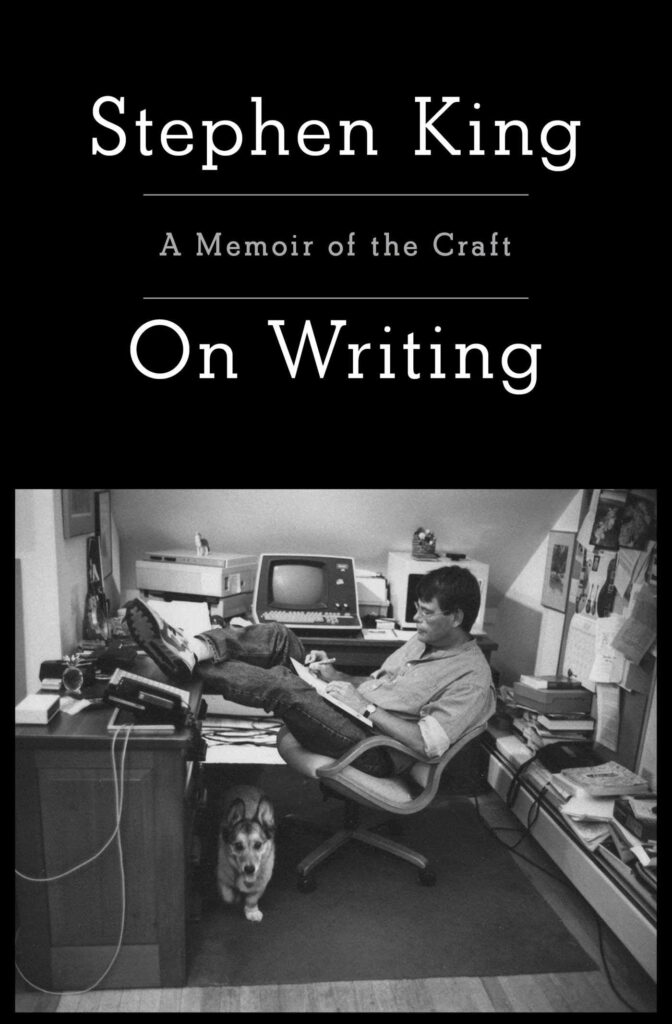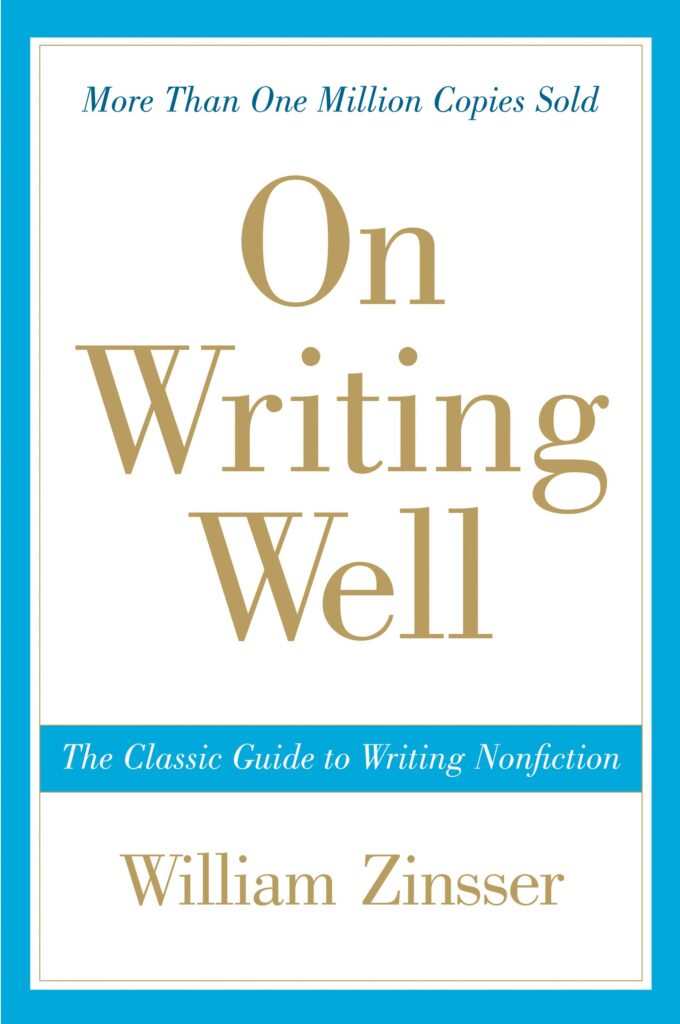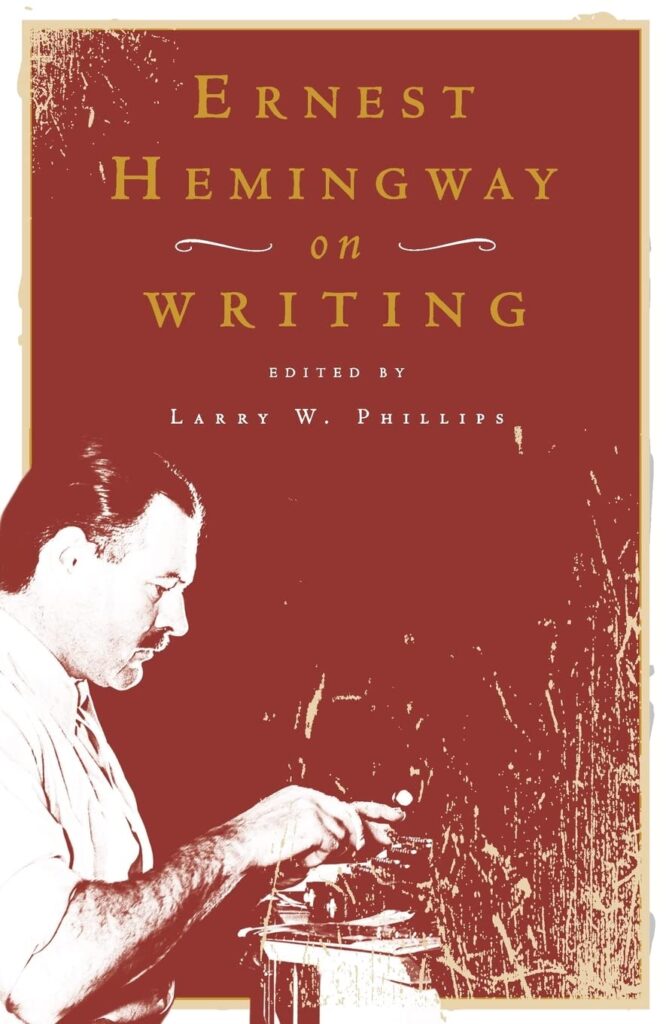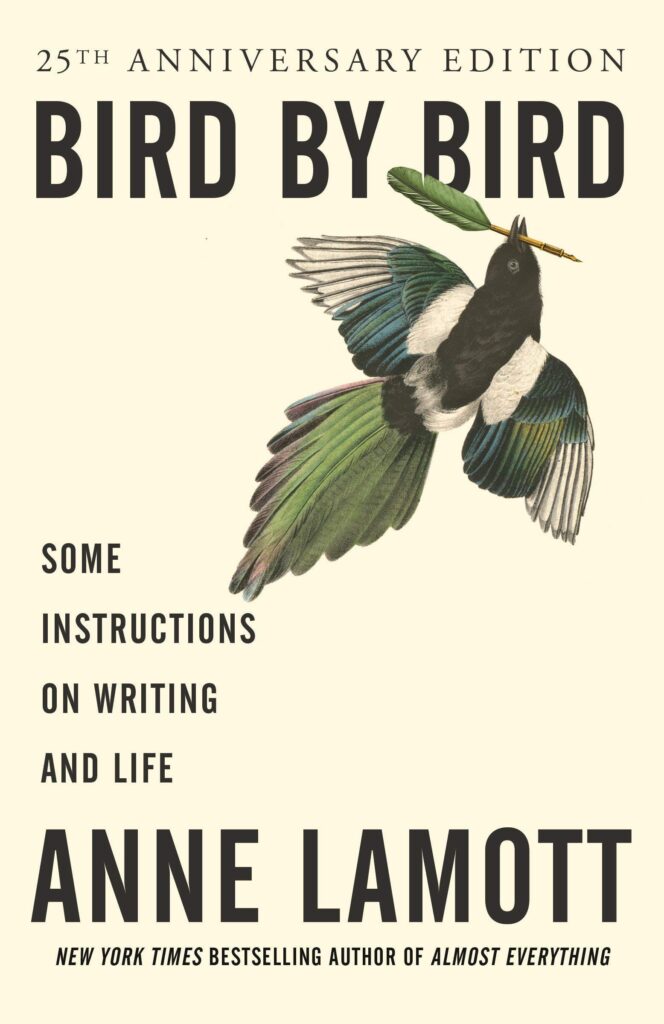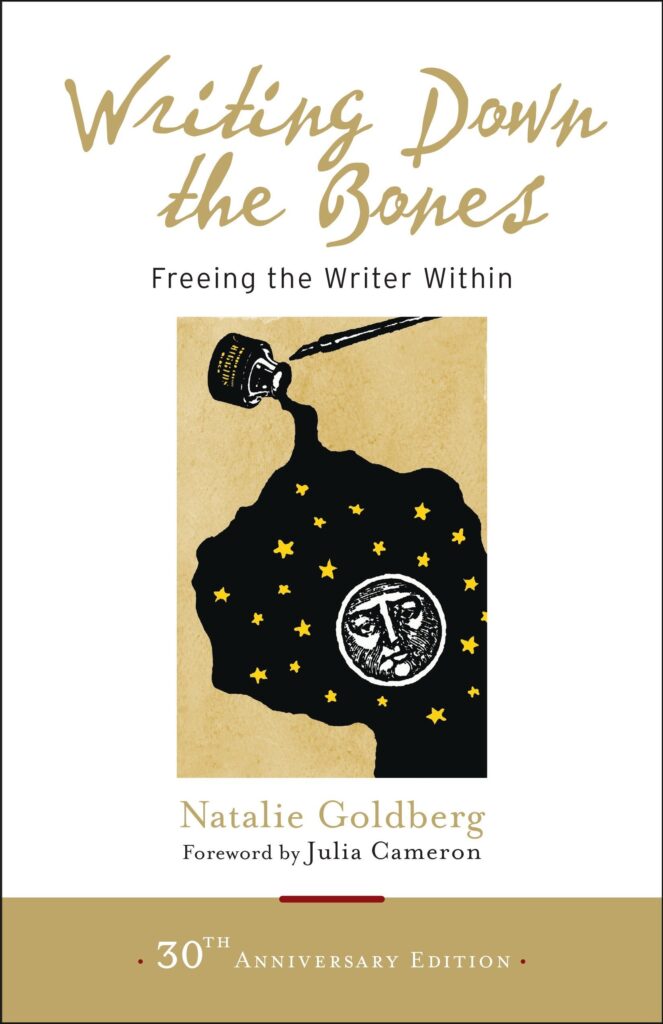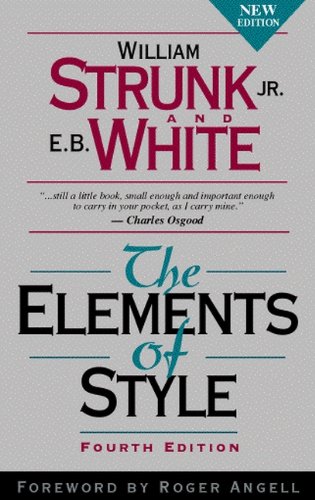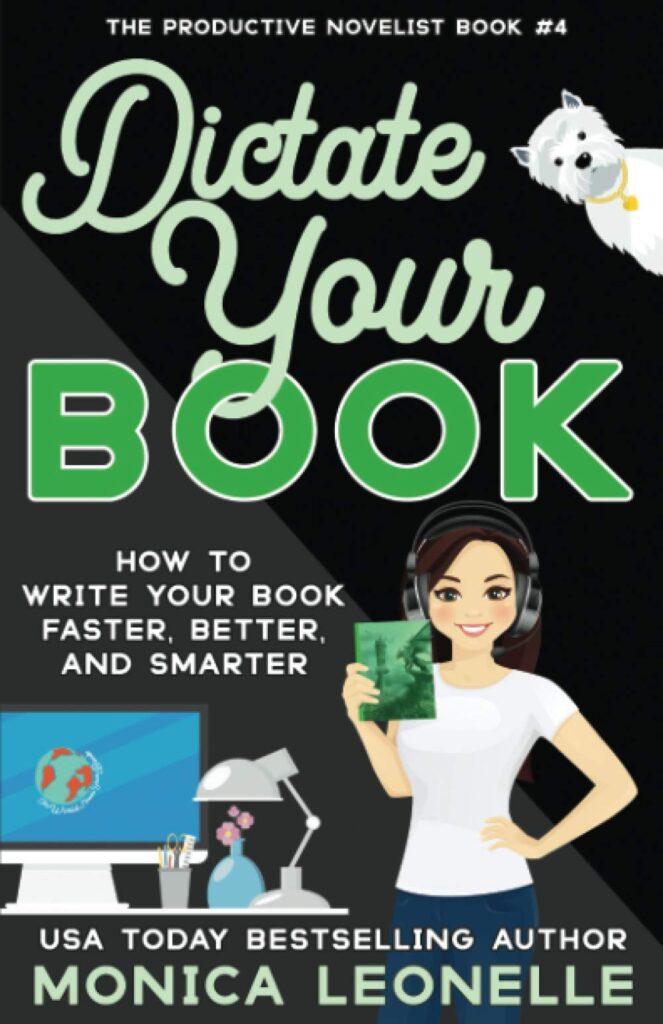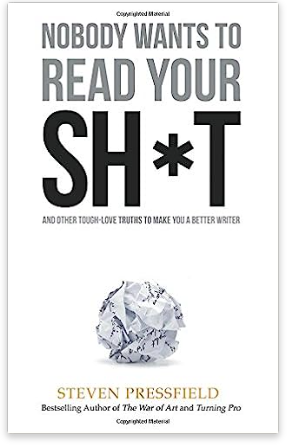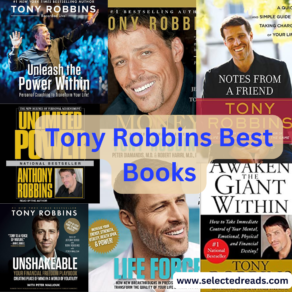Writing is an art form that requires focus, dedication, and practice if one is to become a successful writer. Also, writing starts with reading, ask any writer and they will tell you that reading is one of the most important tools for honing writing skills. What is most important about reading, I believe, is that it primes your mind to embrace the identity of a writer. Once you do, you start looking at the world differently and you become more attentive to the nuances that make writing a sublime aesthetic genre.
In this post, I compiled some of the must read books to help you become a better writer. These guides and memoirs are written by authors who have already mastered the art of writing and have become successful writers. The authors offer invaluable advice along with real-life experiences that can help any aspiring writer become the best version of themselves. This list includes classics and modern works, all of which have stood the test of time.
1. On Writing: A Memoir of the Craft, by Stephen King
On Writing: A Memoir of the Craft by Stephen King is one of the writing guides I keep coming back to for tips and motivation. I summarized his writing steps in a post entitled best Stephen King’s writing tips.
In on Writing, King shares his personal experiences, habits, and beliefs that have contributed to his literary success. King’s advice is augmented with practical tips and tools for writers. Part memoir and part master class, the book is structured around the basic tools of the trade every writer must have.
King’s advice is grounded in his childhood memories and his struggles as a writer, including the near-fatal accident in 1999 that nearly ended his career. The book is inspiring, friendly, and engaging, making it accessible and valuable to readers of all levels.
2. On Writers and Writing, by Margaret Atwood
On Writers and Writing, by Margaret Atwood dis another great writing guide I highly recommend for anyone keen on becoming a better writer. Atwood draws on her own experiences and anecdotes from her writing career, as well as references to other writers, both living and dead. Her writing is both light-hearted and serious, as she discusses the purpose and pleasures of writing while also displaying a deep familiarity with the myths and traditions of western literature.
3. On Writing Well: The Classic Guide to Writing Nonfiction, by William Zinsser
Zinsser’s book On Writing Well is another guide I have read multiple times especially during my graduate studies. This classic nonfiction writing resource has been commended for its practical advice presented in a clear and engaging style, which makes it appealing to readers of all levels.
Regardless of the subject matter you want to write about, On Writing Well provides you with fundamental principles and insights that can help you become a better writer. Zinsser teaches with authority, offering actionable tips on how to write compellingly about people, places, science and technology, business, sports, arts, and even writing memoirs.
4. Ernest Hemingway on Writing, by Larry W. Phillips
Ernest Hemingway, known for his belief that it was bad luck to talk about writing, ironically went on to discuss the craft of writing throughout his career. Larry W. Phillips compiled Hemingway’s reflections on writing, work habits, and discipline in the book Ernest Hemingway on Writing.
The book contains insights into the nature of the writer as well as Hemingway’s personal wisdom, humor, and wit. Despite his reluctance to discuss writing, Hemingway wrote with incisiveness on the subject and offered helpful advice to fellow writers.
5. Bird by Bird: Some Instructions on Writing and Life, by Anne Lamott
Another of my favourite books on writing is Bird by Bird by Anne Lamott. This is a practical handbook for writers, providing valuable advice on how to overcome self-doubt, manage distractions, and cultivate the discipline needed to complete a writing project, no matter how daunting it may seem. Drawing on her years of experience as a professional author and teacher, Anne Lamott shares her insights into the creative process, the craft of writing, and the challenges writers face.
The book gets its title from a story Anne’s father told her older brother when he was struggling to write a report on birds. Anne’s father advised her brother to take it “bird by bird,” a simple yet profound suggestion that encapsulates the core message of the book. Anne encourages writers to break down their work into manageable chunks and to focus on the present moment, rather than becoming overwhelmed by the enormity of the task ahead.
The book covers a wide range of topics, including developing an authentic voice, dealing with criticism, and finding inspiration in the world around us. Anne uses humor, honesty, and personal anecdotes to engage readers and to demonstrate the power of storytelling to connect us to ourselves and to others.
Overall, Bird by Bird is a must-read for anyone who wants to write, whether you’re a seasoned pro or just starting out. It offers practical advice, encouragement, and support to help you overcome the challenges that come with the terrain of the writing life.
6. Writing Down the Bones: Freeing the Writer Within, by Natalie Goldberg
In Writing Down the Bones, Natalie Goldberg takes a practical and humorous approach to inspiring writers to unleash their creativity and develop their writing skills. Through short and easy-to-read chapters, Goldberg provides helpful tips and advice on various aspects of writing, including writing from “first thoughts,” listening, using powerful verbs, and overcoming self-doubt. She emphasizes the importance of writing as a practice that helps writers understand the value of their experiences and enriches their lives.
7. How to Write, Edit, and Publish Your Memoir by Carolyn Jourdan et al.
If you’re an aspiring memoir writer, How to Write, Edit, and Publish Your Memoir by Carolyn Jourdan et al is a book you need to consider reading. This concise volume answers all the questions you have and more.
Jourdan, a seasoned memoirist and USA Today bestselling author, offers readers tips and tricks from six of her colleagues, who are also esteemed writers. The book covers all the bases of memoir writing from starting to editing and publishing. It even offers guidance on questions you didn’t know to ask.
8. Writing Tools : 55 Essential Strategies for Every Writer, by Roy Peter Clark
Writing Tools by Roy Peter Clark is a renowned guidebook for writers, incorporating thirty years of experience in journalism, writing, and teaching. The book consists of fifty concise essays covering various aspects of writing, which make it ideal for both novices and seasoned writers.
The book is divided into four sections, including “Nuts and Bolts,” “Special Effects,” “Blueprints for Stories,” and “Useful Habits,” offering readers a comprehensive guide to the art of writing. This classic guidebook has been infused with more than 200 examples from journalism and literature, providing readers with practical insights into the craft of writing.
9. The Elements of Style, Fourth Edition, by William Strunk Jr., E. B. White
The Elements of Style by William Strunk Jr. and E. B. White is a timeless classic style manual that has been used by millions of readers to improve their writing. Now in its fourth edition, the book’s tone, wit and charm have continued to convey the principles of English style. The new foreword by Roger Angell attests to the continued relevance of the advice from Strunk & White.
This little book has been highly effective in making a big impact with writing because it offers valuable advice that is as useful today as it was when it was first published. The book has become an invaluable resource that every writer needs on their shelf to guide them in writing to the highest standard.
10. Dictate Your Book: How To Write Your Book Faster, Better, and Smarter, by Monica Leonelle
Dictate Your Book by Monica Leonelle is a must-read book for those of you looking to improve their writing speed, quality, and efficiency. The book provides detailed information about dictation and how it can help writers to be more productive. It highlights the challenges that writers face when using dictation and provides tips on how to overcome them. The author also suggests various tools and equipment required for dictation and how to test them before buying.
The book provides a comprehensive guide to dictation and offers insights into the benefits it can provide to writers. It emphasizes the importance of writers adopting this new technology to remain ahead of the curve in the competitive world of publishing.
11. Nobody Wants to Read Your Sh*t: And Other Tough-Love Truths to Make You a Better Writer, by Steven Pressfield
Nobody Wants to Read Your Sh*t by Steven Pressfield is a book that offers tough love truths to help writers improve their craft. The book emphasizes the importance of recognizing that readers don’t want to read poorly written content. Through this understanding, writers can develop empathy and the ability to switch perspectives from their own to that of their readers.
The book provides practical tips and strategies to help writers create interesting and engaging content, including asking themselves whether their writing is challenging, inventive, and fun, and whether they are providing readers with enough value. The author’s goal is to help writers transform from amateurs to professionals, and the book offers valuable insights that can benefit anyone looking to improve their writing skills.



